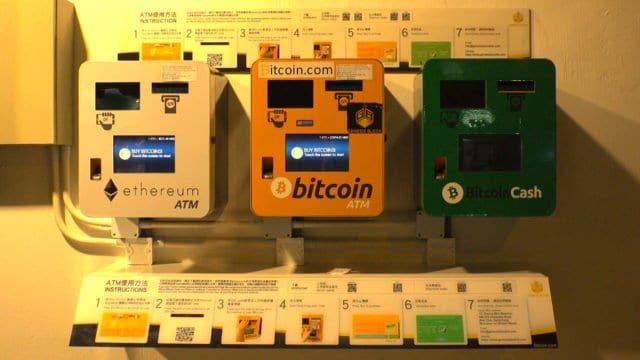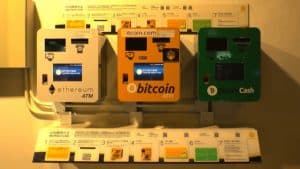Join Our Telegram channel to stay up to date on breaking news coverage
Bitcoin Automated Teller Machines (Bitcoin ATMs) have been a propeller in the campaign to ramp up cryptocurrency adoption across the world. Many have praised the devices and their ability to make crypto more accessible to people. However, a new report is also detailing the dark side of these machines.
Projected Tightened Regulations for ATMs
Recently, crypto analytics company CipherTrace published its Spring report for 2020. In it, the company explained that money launderers have been able to use Bitcoin ATMs to make fund transfers to “high-risk exchanges” – essentially, platforms that CipherTrace believes have significant links to money laundering and other illicit activities.
As the report explained, the percentage of funds finding their way to these exchanges has doubled every year since 2017. The rate is currently about 8 percent of all Bitcoins involved in transactions across the United States – up from 2 percent in 2017.
CipherTrace also highlighted that about 88 percent of all Bitcoin ATM transactions in the United States included sending money to destinations outside the country. Given these transactions’ murky nature, CipherTrace predicted that regulators would most likely turn their focus to the Bitcoin ATM space next.
The report is coming just days after the total number of Bitcoin ATMs worldwide hit a new milestone. Data from monitoring site Coin ATM Radar shows that there are now over 8,000 Bitcoin ATMs in the world. These devices are spread across 73 countries, with the United States alone having about 6,000 of them.
The new figures mark an impressive 17 percent growth since March, when the devices crossed the 7,000 mark. In several ways, this appears to show a significant demand for the public use of cryptocurrencies.
Global Regulators Rising to the Threat
As stated earlier, it’s worth noting that many of these devices are in the United States. Still, the fact remains that Bitcoin ATMs are increasing in more countries at an incredible pace. Given that several money launderers have tried to conduct illicit transactions with these machines, it is worth considering how authorities might want to proceed with regulation.
Several countries are already considering a means of regulation. Two days before CipherTrace’s report came out, the Canadian government published new regulations on local firms dealing with digital assets as Money Service Businesses (MSBs).
Francis Pouliot, a member of the Bitcoin Foundation Canada, explained on Twitter that the new regulation would affect companies that swap crypto for cash. More specifically, Bitcoin ATM operators will get the brunt of its effects.
As he explained, Bitcoin ATM operators will now have to report all transactions worth CAD 10,000 ($7,325) of more. The rule is part of an amendment to the Proceeds of Crime (Money Laundering) and Terrorist Financing Act, which the Canadian government passed into law in June 2019. The German Financial Market Authority (BaFin) also targeted unlicensed Bitcoin ATMs earlier this year. In March, the regulator ordered KKT UG, A Bitcoin ATM operator, to cease its business.
According to a cease-and-desist order at the time, the authority asked the company to end “cross-border proprietary trading.” The agency also introduced new anti-money laundering (AML) regulations that will require crypto-related businesses (exchanges, wallet providers, custodians, and ATM makers) to get a BaFin-issued license to operate.
Read more:
Join Our Telegram channel to stay up to date on breaking news coverage


